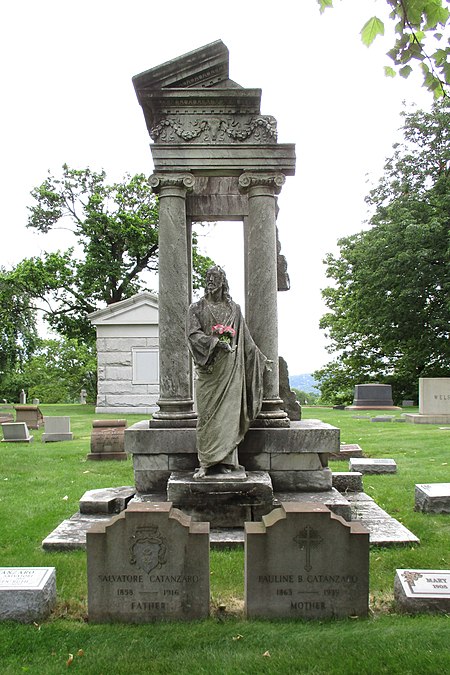
Perhaps Dan Brown could recommend a Harvard symbologist to unravel the strands of symbolism here. Christ (holding a bouquet of artificial flowers, because he stood still too long in a Catholic cemetery) is stepping down from a ruined Ionic temple, his left hand seeming to gesture toward the ruins behind him, as if he has something to tell us about them. We could say that the ruined temple represents shattered and broken paganism, and Christ shows the way forward. Or perhaps, in spite of the Greek style, the ruins represent the Temple in Jerusalem, where not one stone was left upon another, and Christ emerges fresh from that ancient tradition, stepping forward to bring the real Temple to us.










